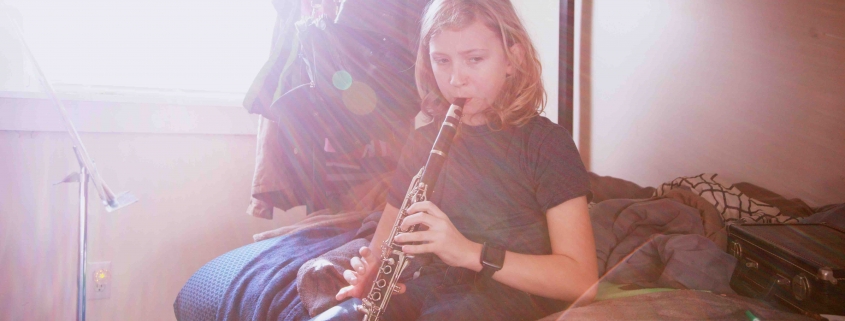Understanding the social and emotional impact of lockdown
Crispin Chatterton, Director of Education, GL Education
Understanding the social and emotional impact of lockdown
A few weeks into the coronavirus crisis, health experts and psychologists were warning that a tidal wave of mental illness could overwhelm children post-lockdown because of the problems they had stored up during it.
Those fears understandably persist, as the disruption to school life in some schools continues well beyond the time initially envisaged. The fears have, however, been tempered by more recent studies, including a survey of 10,000 parents and children by psychologists at the University of Oxford, which painted a much more nuanced picture.
Parents of children under the age of 11 largely agreed that they had noticed an increase in stress and behavioural problems in their children as lockdown went on. But parents of teenagers tended to report that on average their children’s behaviour and emotional wellbeing had continued much as before and they hadn’t noticed any deterioration.
Indeed, some parents – including those with children who had special educational needs or pre-existing mental health issues – said that their offspring’s emotional behaviour had tended to improve during lockdown.
Schools are rightly concerned about their students’ wellbeing after such a long absence. But the Oxford study reveals not only children’s fragility, but also their resilience. Some will have found the experience an ordeal – but many won’t. The challenge is to identify the students most in need of support and apply the right strategies.
Shining a light on student wellbeing
Some schools benefitted from having a clear picture of their students’ wellbeing before they went into lockdown. At Garden International School (GIS) in Kuala Lumpur, Michael Browning, then Head of Year 7, was in the middle of a year-long project to support students that they had identified as fragile learners using data from the Pupil Attitudes to Self and School (PASS) survey.
The survey is a psychometric assessment that measures student attitudes across nine factors that are proven to be significantly linked to educational goals, such as a child’s perceived learning capability and their response to curriculum demands. The scores are accompanied by a series of practical interventions aligned to each of the factors to support schools in responding to their findings. These interventions have been updated this year to provide guidance to support students returning to school after a prolonged absence.
Because a significant number of the GIS fragile learner group were EAL students who had a significant verbal deficit, Michael worked closely with the Head of EAL as well as the school counsellors to devise a programme that supported students’ literacy as well as identifying and managing emotions.
At the end of term 2, things were going well; the school measured an increase in attainment and progress across the year group, and the level of increase was higher for the fragile learner group.
As the school went into lockdown the programme had to be adapted, with lots of emphasis on celebrating success and recognition of effort. As Michael explained: “As head of year, tracking the more vulnerable students has become more challenging during this period of online learning – but equally more important than ever!”
The data for the end of term 3 showed another increase in attainment and progress levels for the fragile learners. Despite the challenges faced during lockdown, the project has shown that using attitudinal data to target certain groups works.
Michael explains: “The project has given me a way to use the data in a smart way – shining a light on students who might otherwise get missed.” PASS has also made it clear that we don’t need to go away and suddenly re-learn how to teach or work with students – it’s reassured me that a lot of what we do in class is already going to be helping the students, but it’s prompting you as a teacher to be aware and to use these strategies consistently.”
Understanding attitudes as students returned to school
At Jumeira Baccalaureate School in Dubai, the Head of Secondary, Erika Elkady, was apprehensive about students’ social and emotional wellbeing as they returned to school after the long lockdown:
“Had they been able to process the ‘new normal’ which we as adults were still trying to come to terms with? How would our teenagers respond to be back in school after such a long time?”
To get the answers, the school carried out a PASS survey in the second week of the school year.
“The data gave us a wealth of information,” Erika explains. “We learned that our phase 3 students’ attitudes in all nine factors are now more positive than when we started to conduct regular PASS surveys in 2017.
“Our phase 4 data on the other hand shows a slight dip in students’ perceived learning capability and confidence in learning, which is not unsurprising as the lockdown and the uncertainty about exams in May 2021 will cause some anxiety in our seniors.
“Overall, the data is comforting as we learned that our students’ overall wellbeing is much better than we had hoped for. Moreover, we also know now who needs extra attention as we have been able to flag a number of students.”
So, while it may be obvious that different students will react in different ways to any challenge, including those set by coronavirus, having a way to identify and weight each group or individual’s feelings allows schools to prioritise and calibrate their response.
Erika Elkady and Michael Browning will be speaking about the social and emotional impact of lockdown on students at GL Education’s online Global Assessment Conference in November.
Find out more and register for free here.
What do you think about the points raised in this article? We’d love to hear what you have to say.
CONTACT THE AUTHOR

Crispin Chatterton, Director of Education, GL Education





Leave a Reply
Want to join the discussion?Feel free to contribute!